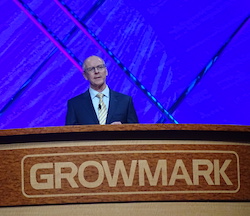 Responses to the recent study by John DeCicco on biofuels and carbon continue with many coming from researchers including Dr. Steffen Mueller, principal economist with the Energy Resources Center at the University of Illinois at Chicago. In a published retort, he wrote that the study, “…fails to establish a correlation between existing biofuels policies and net carbon uptake and it neglects several important carbon pools in its assessment.”
Responses to the recent study by John DeCicco on biofuels and carbon continue with many coming from researchers including Dr. Steffen Mueller, principal economist with the Energy Resources Center at the University of Illinois at Chicago. In a published retort, he wrote that the study, “…fails to establish a correlation between existing biofuels policies and net carbon uptake and it neglects several important carbon pools in its assessment.”
Mueller wrote in his response that he, along with other researchers, reviewed both the publication and supplemental information including the spreadsheet with calculation details. He states, “We support the notion that valuable insights can be gained from tracking both carbon inflows and outflows (emissions and uptake) within consistent modeling boundaries. However, in this case the boundaries are set to include largely unrelated agricultural carbon flows.”
The CeCicco paper, funded by oil industry, made biofuels production responsible for a net gain in “net ecosystem production” (NEP) and argues a correlation between biofuels production and crop mix development. However, Mueller argues that this relationship is weak and pointed out that in many instances, corn acres planted were reduced even though ethanol production increased. Mueller continued, “However, the paper’s general approach to assess to what degree ethanol emissions match with changes in NEP is questionable.”
Ultimately, Mueller writes that, “…the ABC methodology fails to establish a correlation between existing biofuels policies and net carbon uptake and it neglects several important carbon pools in its assessment. Further research in this area is required.”
Click here to read Dr. Mueller’s full academic response to the biofuels and carbon study.













